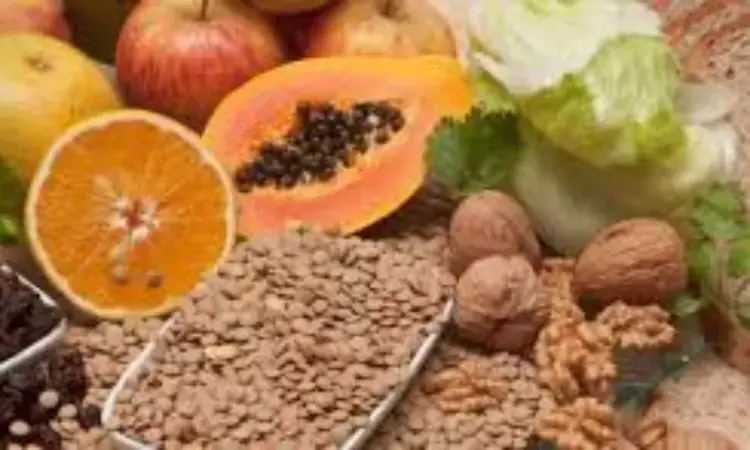- Home
- Medical news & Guidelines
- Anesthesiology
- Cardiology and CTVS
- Critical Care
- Dentistry
- Dermatology
- Diabetes and Endocrinology
- ENT
- Gastroenterology
- Medicine
- Nephrology
- Neurology
- Obstretics-Gynaecology
- Oncology
- Ophthalmology
- Orthopaedics
- Pediatrics-Neonatology
- Psychiatry
- Pulmonology
- Radiology
- Surgery
- Urology
- Laboratory Medicine
- Diet
- Nursing
- Paramedical
- Physiotherapy
- Health news
- Fact Check
- Bone Health Fact Check
- Brain Health Fact Check
- Cancer Related Fact Check
- Child Care Fact Check
- Dental and oral health fact check
- Diabetes and metabolic health fact check
- Diet and Nutrition Fact Check
- Eye and ENT Care Fact Check
- Fitness fact check
- Gut health fact check
- Heart health fact check
- Kidney health fact check
- Medical education fact check
- Men's health fact check
- Respiratory fact check
- Skin and hair care fact check
- Vaccine and Immunization fact check
- Women's health fact check
- AYUSH
- State News
- Andaman and Nicobar Islands
- Andhra Pradesh
- Arunachal Pradesh
- Assam
- Bihar
- Chandigarh
- Chattisgarh
- Dadra and Nagar Haveli
- Daman and Diu
- Delhi
- Goa
- Gujarat
- Haryana
- Himachal Pradesh
- Jammu & Kashmir
- Jharkhand
- Karnataka
- Kerala
- Ladakh
- Lakshadweep
- Madhya Pradesh
- Maharashtra
- Manipur
- Meghalaya
- Mizoram
- Nagaland
- Odisha
- Puducherry
- Punjab
- Rajasthan
- Sikkim
- Tamil Nadu
- Telangana
- Tripura
- Uttar Pradesh
- Uttrakhand
- West Bengal
- Medical Education
- Industry
Fiber-Rich Diet Found Crucial in Preventing lethal colitis in susceptible individuals: Study

Inflammatory bowel diseases (IBDs), including ulcerative colitis and Crohn's disease, present significant challenges for affected individuals, with symptoms ranging from mild discomfort to severe complications. Despite extensive research, the exact etiology of IBDs remains elusive, but recent findings shed light on the intricate interplay between diet, gut microbiota, and genetic factors.
The study, published in Cell Host & Microbe, investigated the role of dietary fiber in modulating gut microbiota and its impact on colonic health in mice lacking interleukin-10 (Il10−/−), a cytokine associated with IBDs. Prior research has highlighted the importance of diet and gut bacteria in IBD development, but the underlying mechanisms are still being elucidated. This study was conducted by Gabriel and colleagues.
Researchers subjected Il10−/− mice to a fiber-deprived diet to mimic dietary habits prevalent in industrialized populations. They observed the progression of colonic inflammation and analyzed changes in gut microbiota composition, mucus thickness, and immune responses.
• Mucosal Deterioration: The study found that a fiber-deprived diet led to the deterioration of colonic mucus in Il10−/− mice, precipitating lethal colitis.
• Immune Response: Inflammation was initiated by the expansion of natural killer (NK) cells and alterations in bacterial IgA coating, preceding the onset of colitis.
• Microbial Influence: Th1 immune responses were triggered by increased activities of mucin-degrading bacteria, particularly in regions with thinner mucus, driving the progression of colitis.
• Dietary Intervention: Exclusive enteral nutrition with a fiber-free diet exacerbated mucus erosion but mitigated inflammation by increasing the production of an anti-inflammatory bacterial metabolite, isobutyrate.
The findings underscore the critical role of dietary fiber in maintaining colonic health and preventing the onset of lethal colitis, particularly in individuals genetically predisposed to IBDs. By promoting the development of healthy mucus thickness and inhibiting inflammatory responses, fiber-rich diets may offer a preventive strategy against IBDs.
These findings have significant implications for the management and prevention of IBDs in clinical settings. Incorporating fiber-rich foods into the diet may help modulate gut microbiota composition and enhance colonic barrier function, thereby reducing the risk of inflammatory flare-ups and disease progression.
In conclusion, the study highlights the importance of dietary fiber in preserving colonic health and preventing lethal colitis in susceptible individuals. Further research is warranted to elucidate the precise mechanisms underlying the interplay between diet, gut microbiota, and genetic factors in IBD development. These insights pave the way for targeted interventions aimed at optimizing dietary habits and promoting gut health to mitigate the burden of inflammatory bowel diseases.
Reference:
Pereira, G. V., Boudaud, M., Wolter, M., Alexander, C., De Sciscio, A., Grant, E. T., Trindade, B. C., Pudlo, N. A., Singh, S., Campbell, A., Shan, M., Zhang, L., Yang, Q., Willieme, S., Kim, K., Denike-Duval, T., Fuentes, J., Bleich, A., Schmidt, T. M., … Martens, E. C. (2024). Opposing diet, microbiome, and metabolite mechanisms regulate inflammatory bowel disease in a genetically susceptible host. Cell Host & Microbe. https://doi.org/10.1016/j.chom.2024.03.001
Dr Riya Dave has completed dentistry from Gujarat University in 2022. She is a dentist and accomplished medical and scientific writer known for her commitment to bridging the gap between clinical expertise and accessible healthcare information. She has been actively involved in writing blogs related to health and wellness.
Dr Kamal Kant Kohli-MBBS, DTCD- a chest specialist with more than 30 years of practice and a flair for writing clinical articles, Dr Kamal Kant Kohli joined Medical Dialogues as a Chief Editor of Medical News. Besides writing articles, as an editor, he proofreads and verifies all the medical content published on Medical Dialogues including those coming from journals, studies,medical conferences,guidelines etc. Email: drkohli@medicaldialogues.in. Contact no. 011-43720751


